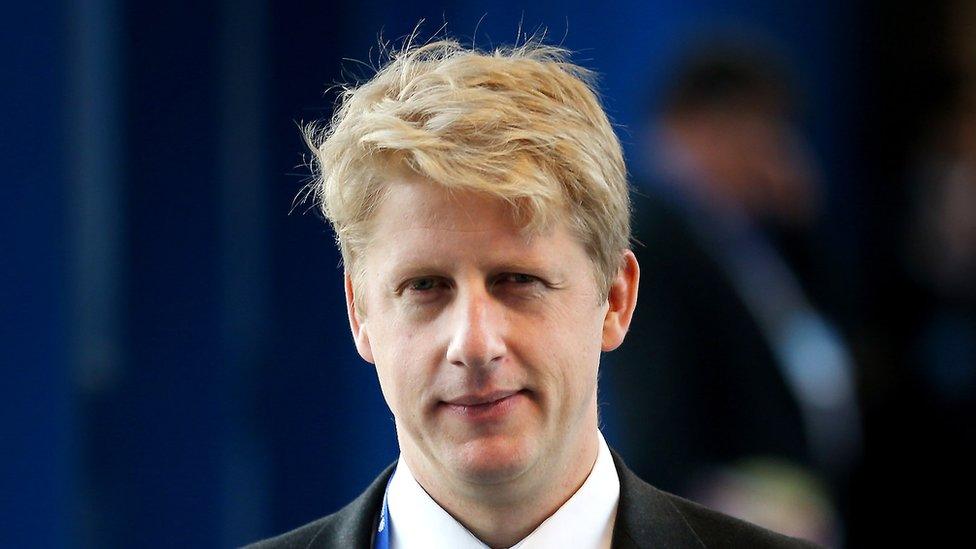The challenges facing universities in 2018
- Published
- comments

It's been a bad year for universities.
The row over vice-chancellors' pay has been a long, drawn-out box set of disasters for universities, with the highest-paid leader, the head of the University of Bath, stepping down, in a moment that was both unprecedented and deeply symbolic.
Tuition fees have been frozen and an imminent major review of student funding has cast a cloud of financial uncertainty.
From Monday, a new higher education regulator comes into force, with the Office for Students charged with ensuring value for money.
Instead of being seen as undisputed forces for public good, universities have faced accusations of looking out of touch and self-serving.
It's a very unfamiliar and uncomfortable position for universities. And one that they will want to escape in 2018.
So how will universities reverse out of the swamp?

Tuition fee review
An early crunch point will be the forthcoming review of university funding.
This was promised after Jeremy Corbyn's Labour Party revived the student vote with a promise to scrap tuition fees, with swings to Labour of over 20% in some university seats.
It's a political response from the government but it will be universities that will be watching nervously.

There might be a strong push for the prime minister to make a popular appeal to young voters rather than listen to universities defending the intricacies of their funding mechanisms.
And after the board of the Social Mobility Commission walked out in protest over a lack of progress, the government will want to show it's serious about removing barriers.
The level of fees, interest rates, the sale of student debt, the return of maintenance grants, the length of repayments could all be under scrutiny.
There will be warnings that changes to fees could mean reintroducing limits on student numbers and questions about attracting more mature and part-time students.
There will also be calls for more substantial changes, such as switching from fees and loans entirely to a graduate tax or some kind of graduate contribution scheme.
But universities have made something of a Faustian pact with tuition fees.

They craved the reliable income. But they thought that they could completely change their funding but not really change much else.
They didn't really see themselves having to become consumer-friendly businesses with millions of young customers who are keenly aware of how their money is being spent.
At the beginning of the year, universities were pushing for fees to increase every year with inflation, which would soon have seen annual fees passing £10,000.
They thought they were getting on to a financial launchpad. But it turned out that they were crowding on to a trapdoor.

Universities were told by the advertising watchdog to withdraw claims that could not be proved
Instead of getting financial independence, the next fee increase was cancelled and their future funding was seen to be entirely dependent on the shifting political sands.
The head of Oxford University attacked "tawdry politicians" for linking vice-chancellors' pay with increases in tuition fees.
But the Universities Minister, Jo Johnson, now seems to be the universities' best hope for protecting their fees.
This political slow-burner, an increasingly confident figure, seems committed to defending the core architecture of the tuition fees system.
But the future of tuition fees is now as unpredictable as the politics of a minority government.

Pay scandals
The dispute over vice-chancellors' pay was toxic for universities.
And with stories about big bonuses, housekeepers, chauffeurs and grace-and-favour residences, it was difficult for universities to be taken seriously over other concerns, whether it was research funding or worries about losing European staff and students after Brexit.

Staff and students at Bath protesting over their vice-chancellor's pay
But a deal on senior pay seems to have been reached, with a new fair pay code to be introduced in the new year. University heads have moved to put their own house in order before a new regulator, the Office for Students, could apply more direct pressure.
There could be further difficult stories about pay and perks - but assuming there is some rigour to the new rules, at least university leaders can claim to have listened.

Financial independence
Many of the biggest pitfalls for universities are around the lack of reliable, long-term funding - and one of the most quietly significant moves in 2017 was Oxford University's raising of £750m from a bond issue.

Oxford University has raised a record amount of funding for a UK university bond issue
This was about major UK universities' desire to have financial security of the kind taken for granted by their big US counterparts.
While Oxford haggles over fees set by the government, Harvard University can rely on an income from an endowment standing at $37bn (£28bn).
Expect to see more UK universities trying to find ways to get money that is not reliant on fees or politicians.

Value for money
This year's survey of student attitudes, carried out by the Higher Education Policy Institute, showed only 32% of students in England thought their courses were good value for money.
This is something that universities will really need to address - including questions about how many hours students are taught, the quality of teaching and whether there are facilities that were promised.
For the first time this year, a number of universities were warned by the advertising watchdog that they had made claims that could be misleading.
And Central St Martins refunded students their fees after complaints about how their course was delivered.
Offering customer service, while maintaining academic rigour, will be a tricky balancing act.
And a first-class education can't just mean everyone getting a first-class degree.
Or will other universities follow Surrey, which was revealed this year to have given first-class degrees to more than 40% of students?

Free speech
Universities can get irritated by claims they're not doing enough to protect free speech, a theme picked up recently by the universities minister. They say that legal requirements are already in place and until recently they were being accused of allowing too much free speech, in the form of campus extremism.

Jo Johnson MP, the universities minister. says they must protect free speech and "open minds, not close them"
But there are really thorny issues around how controversial ideas and beliefs are debated at universities and how some student politics seems to be about shutting down some opposing voices in favour of "safe spaces" and "no-platforming" policies.
Much of this is about the rise of the identity politics of race, gender and sexuality, as much as university governance. It's about who controls the conversation.
Expect more shadow boxing over symbols, statues and language. But universities are going to have to find a middle way through such headline-grabbing, polarising disputes.

Finding an identity
Universities remain an aspiration for families, a priority for a modern economy and a major export business.
But somewhere along the way they seem to have suffered some kind of identity crisis. What are they for? Who are they meant to serve? And who should pay for them?
Maybe their biggest challenge is to find a renewed sense of purpose and to make a new contract with the public about how they can support one another.
- Published8 July 2017
- Published13 July 2017